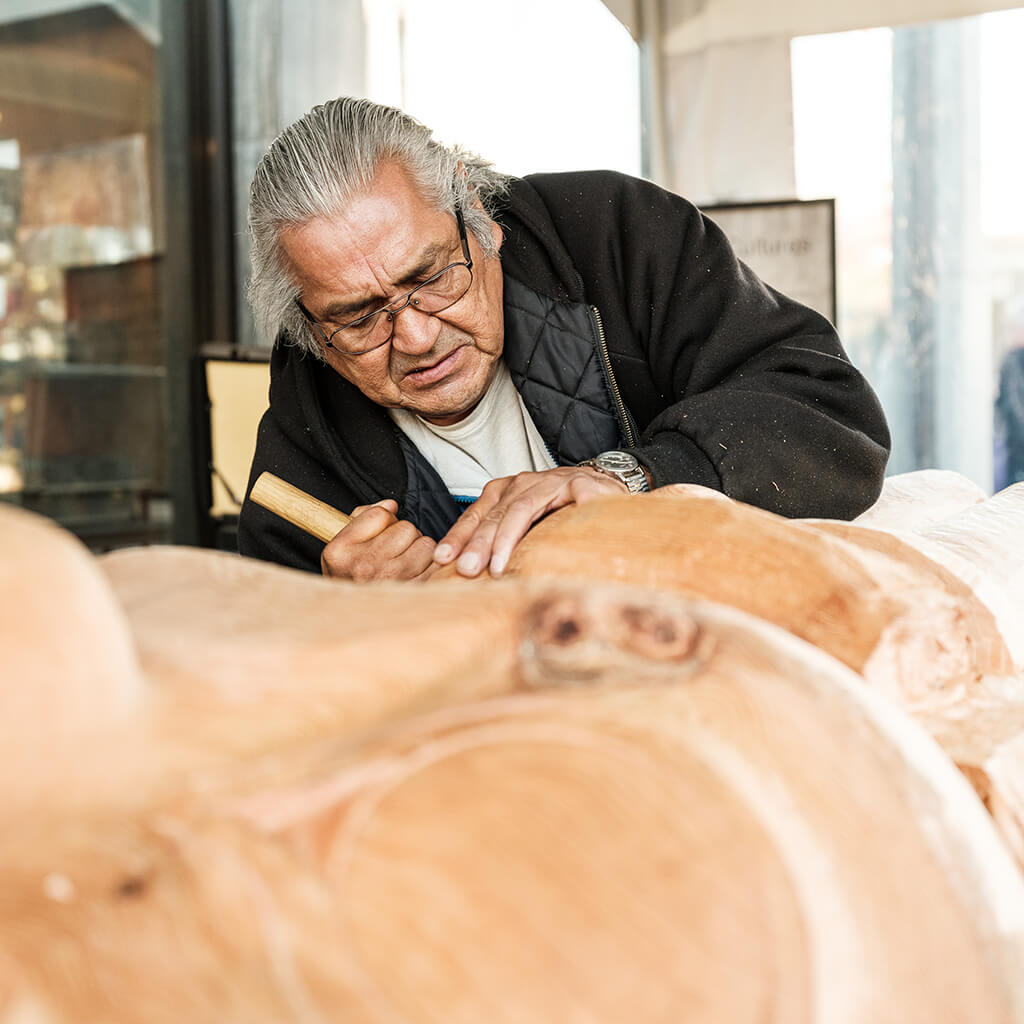How we’re working with Indigenous Peoples
Every part of the Anti-Racism Data Act was developed with Indigenous Peoples and other racialized communities.
As we move forward, every part will continue to be developed with Indigenous Peoples and other racialized communities.
We are committed to working with First Nations, Métis and Inuit people to address systemic racism in programs and services.
The Anti-Racism Data Act enables us to collect and use personal information to help address systemic racism and advance racial equity.
Recognizing Indigenous data sovereignty is an essential part of the ongoing consultation with Indigenous governing entities (IGEs) under the Anti-Racism Data Act.
We will continue to work together with Indigenous governments on all data initiatives developed under the Act, including:
- Data directives and standards to guide how and what data is collected
- Research priorities to focus our efforts on the issues that are most important to First Nations, Métis and Inuit people and other racialized communities
- Release of statistics or other information so that communities know about any information that we publish
The Act supports our ongoing work towards reconciliation under the Declaration on the Rights of Indigenous Peoples Act.
Progress Update – June 2025

Creating a new data standard for Indigenous identity
In Spring 2023, Indigenous Peoples recommended several anti-racism research priorities to focus our efforts to address systemic racism in government programs. At the same, Indigenous Peoples also highlighted the importance of taking a distinctions-based approach to this work. This means that our anti-racism research must be done in a way that acknowledges, respects and upholds the distinct rights of First Nations, Métis and Inuit people.
Since the beginning of 2024, we’ve been working with Indigenous partners to create a new data standard. This will guide how government collects and uses information about Indigenous identity.
This new standard will replace the Aboriginal Administrative Data Standard, introduced in 2007, which is now out of date. Changes to the standard will help to:
- Create a standardized approach and provide consistent guidance around how ministries and provincial agencies collect data about Indigenous identity
- Shift the language to “Indigenous” rather than “Aboriginal”, except where the word has specific legal meaning, such as in the Constitution
- Introduce a distinctions-based approach to data collection that recognizes the unique identities of First Nations, Métis and Inuit Peoples
This new standard will help to reduce inconsistent and harmful data collection practices, as well as support Indigenous data sovereignty and self-determination.
We are consulting with Indigenous Peoples and working with other partners to shape this new standard. We expect the publication of the new standard and accompanying guidance in the next year, and we are working across government to support implementation.
Guidance will focus on how to collect, use and disclose demographic information in ways that are culturally safe and prevent harm.
What is a data standard?
Data standards help to ensure government collects data in a consistent way.
Standards created under the Anti-Racism Data Act will guide what personal information we can collect to identify and eliminate system racism and advance racial equity.
Supporting Indigenous data sovereignty and self-determination
Under Action 3.14 of the Declaration Act Action Plan, we’re committed to advancing the collection and use of disaggregated demographic data, guided by a distinctions-based approach to Indigenous data sovereignty and self-determination. This includes supporting the establishment of a First Nations-governed and mandated regional information governance centre in alignment with the First Nations Data Governance Strategy.

Indigenous Peoples asked that we reaffirm our efforts on this action by identifying it as a research priority under the Anti-Racism Data Act.
Work on the Regional Information Governance Centre is being led by BC First Nations through the First Nations Leadership Council (FNLC) and First Nations Data Governance Working Group. The Government of B.C. is supporting FNLC and the working group on activities to create this centre.
The Regional Information Governance Centre will create systemic value by enabling First Nations governments to access and use data for governance and to protect their own data in accordance with their rights of data sovereignty and self-determination.
The centre will also work with the B.C. government and other organizations, as well as other centres across the country to implement new and ethical pathways for the standardized collection, analysis and provisioning of First Nations data, all governed by First Nations governments.
The first phase of the work is underway, including the following steps led by the First Nations Leadership Council:
- Selecting 11 Nation-led data projects, which will result in tools and products that will benefit all First Nations
- Offering free training to Nations participating in data capacity needs-assessments
- Developing a “Build Your Own Data Centre”, as foundational digital infrastructure Inviting First Nations in B.C. (DOC) to gain early access to the “Build Your Own Data Centre” platform, for the purposes of user testing and democratizing access to advanced data tools and infrastructure

Research priorities
On May 30, 2025, we published research priorities for 2025-2027. These will help guide our anti-racism and equity research over the next two years.
All B.C. First Nations and Métis Nation British Columbia were invited to help develop the research priorities.
Building relationships
We’re committed to lasting reconciliation with First Nations, Métis and Inuit communities.
To support this work, we hold monthly data circles with Indigenous governments as space for open and transparent discussions about topics of interest related to the Act or data as it relates to Indigenous communities. All First Nations in B.C. as well as Métis Nation BC are invited to join these meetings.

Looking to learn more?
Continue reading to learn more about how we worked with First Nations and Métis people to create the Anti-Racism Data Act.
